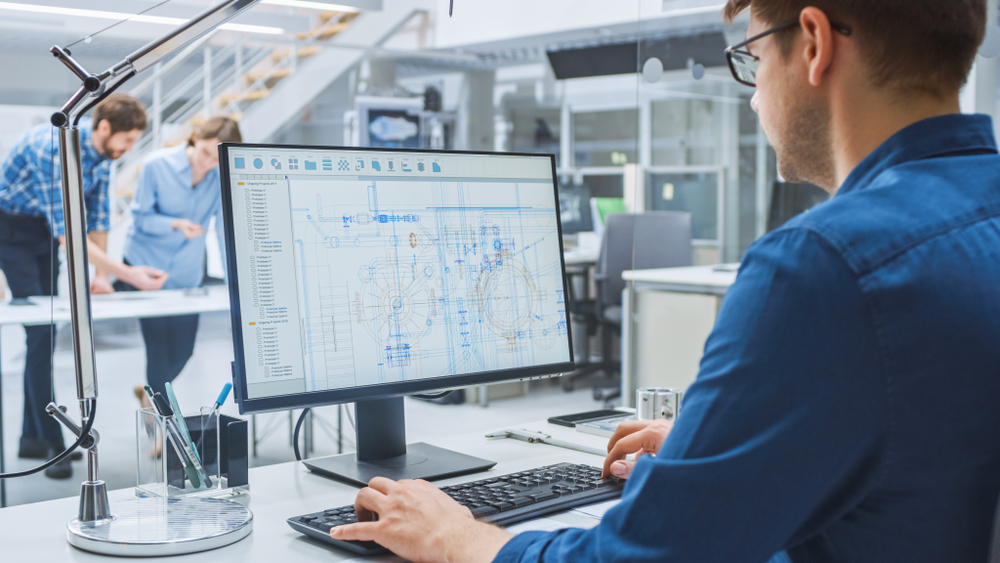Assessing the Future of Computer Engineering
Posted: 21st July 2021 09:38
The most significant breakthroughs in our modern world result from computer science. It’s hard to know where to begin to talk about how it has positively impacted every area of our lives. Computer engineering and software engineering have furthered education, improved healthcare, and accelerated business growth. It has also made the world safer because it has made it easier to predict natural disasters, giving people enough time to evacuate.
Additionally, by expanding communication through affordable devices and networks, especially the Internet, computer engineering has made societies more equitable, empowering disenfranchised people and giving a voice to marginalized populations.
Since computer engineering plays such a vital role in the evolution of the global economy, the Bureau of Labor Statistics estimates it will continue to grow by 2% until 2029.
Here are some speculations on the future of computer engineering:
How to Learn More About the Future of Computer Engineering
While learning about advances in computer education in the media is one way to understand what is happening in computer engineering, it’s far from the best. The best indicator is what is currently taught at computer engineering collegesacross the country. If you’re curious about the future of computer engineering, you might want to consider enrolling in a few classes. And if you would like to contribute to designing the future, you might want to earn a degree.
The Future of Computer Engineering
Since modern computers and computing devices already have plenty of speed, performance, and memory, it’s hard to imagine them getting faster, performing better, or increasing storage. So any changes to computer efficiency are likely to be marginal.
Since most of the changes will focus on increasing coding capabilities and the speed and reach of networks, programming will become increasingly popular. More people will learn how to write code, and they will use better-performing hardware to finish compiling their code faster.
Later in the century, as artificial intelligence(AI) and the Internet of things (IoT) becomes increasingly more sophisticated, the most significant changes in the computer industry are likely to occur in the size and functionality of computers.
Desktops and laptops might even become antiquated, replaced with computers the size of a deck of cards. People may even start wearing computers the size of quarters.
Computers will also become easier to operate. Typing might become a redundant way of inputting information because we will just chat with our computers. Additionally, natural language capabilities, neural pattern recognition, and expert intelligence will become standard computer features.
Wider Use and Adoption of Computers
Although computer technology is widespread in society, certain countries and industries have been slow adopters because of economic constraints.
Since the price of computer hardware and software will drop as new technology is introduced into the market, computer use will spread quickly.
Here are some examples of the broader adoption of computer technology.
School Districts:More schools will use computerswhen the price of computers drops, making it easier for school districts to buy massive numbers of computers. Schools might replace notebooks, pens, and books with computers.
Late Adopters:Although most industries have adopted computers in the workplace, late adopting industries, will now also rely on computers. For instance, the construction industry will start using computers for 3D-printed building models and designs. Biotechis rapidly pushing tech by using simulators to predict outcomes of mixing chemicals, simulating cell reactions, and working on solving modern medical problems, like COVID-19 quicker than ever.
Better Workplace Computers:Computers in almost all workplaces will probably become more robust. Workers will be able to get more done during their working hours because of superior hardware, software, and networks.
Increased Self-Reliance:Computers will become easier to learn how to use and build and fix. The demand for computer professionals will fall as people become more self-reliant. Troubleshooting computer problems or administration of computers in a workplace will not require specialists.
In summary, computers will become ubiquitous everywhere. They will become smaller and easier to operate as artificial intelligence (AI) and the Internet of things (IoT) become mainstream.




Comments